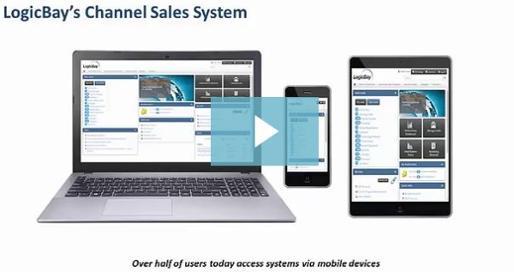Between the rise of inbound marketing, and the rapid changes in buyer behavior in the past few years, online marketing is a whole new world. For the adventurous channel manager and marketing team, this can be an exciting prospect. New methods for acquiring leads are being discovered all the time, while also finding ways to reduce overall spends for improved marketing ROI.
This is vital for indirect sales organizations, because it opens up entirely new avenues for lead-gathering. It's no longer a good idea to leave sales and marketing solely up to partners. Vendors must now be active participants in the online marketing process, discovering and curating leads which are then passed on to the right sales partner in a timely manner.
Creating Solid Online Marketing Strategies That Benefit You And Your Partners
1 - Have an Inbound Marketing Plan in Place
Except for startups, it's a very poor idea to go into inbound\online marketing using ad-hoc strategies. Sure, for a few weeks or months, you can "get by" just making blogs and social media posts without much strategy. However, for best results, there needs to be a real plan in place.
Craft a strategy based on factors such as:
- Overall tone and presentation (casual, professional, etc)
- Online outlets being utilized
- Primary keywords and key phrases targeted
- Ideal customer personas
- Desired market positioning
- Marketing automation strategies
Think about how the content you and your partners will create will tie into these goals. If possible, create a content calendar, a schedule of planned inbound marketing efforts covering 1-3 months ahead of time.
Plus, be sure this is shared freely among your partners. The more they know about your marketing efforts, the more easily they can dovetail their efforts to match.
READ MORE: A CMO's Guide to Managing Sales Channel Partners
2 - Go Where Your Customers Are
Developing good buyer personas is key to a successful online marketing strategy. You need to know as much as possible about your ideal customers. Not just their basic demographic statistics, but also more "trivial" matters such as their outside interests and what websites they're likely to use.
Because there are literally billions of web-pages out there, you will get the best results from online marketing through precise targeting of outlets. Start looking through available websites for those your buyers are going to be visiting. Make those the top priority for the digital outreach you and your partners engage in.
3 - Make More Videos
Filmed advertisements and marketing materials have become truly democratized, now that online video hosting is cheap and easy. In fact, in a study of marketers last year, nearly three-fourths said they consider online video to be just as effective as television advertisements. This is easy to understand, considering the vast rates at which online video is consumed. It's the most-seen, and most-trusted, form of outreach online.
For a relatively low investment in equipment, virtually any business can create a content channel full of videos promoting their products, their ideas, and their vision for the future of their industry. These can then be shared with partners, who should be encouraged to expand upon them. Online videos can be customized or added onto by partners almost as easily as posters and brochures can be.
4 - Be Informative, Not Just Promotional
This is one of the key things which distinguishes 21st Century marketing from years past: Buyers look at content to become informed. They don't want pure marketing pitches. They want information which will be useful to them personally, as well as marketing a certain product.
The best online marketing content could be described as "edutainment". If the content has genuine value for its viewer, they are far more likely to become interested in the products being created by that company.
5 - Use Social Media to Position Yourself
Vendors should not be shy about social media. Being active in communities relevant to your industry is an excellent way to increase mindshare and bring yourself to the attention of new potential leads. As with other forms of content, the key is to contribute in a positive and informative manner.
Braggarts on social media tend to be shunned just as much as they are in real life.
6 - BE HONEST
This final point cannot be emphasized enough. In a world where virtually any fact can be verified within seconds with a simple Google search (or just asking a question of Siri) any sort of marketing material must be as truthful and accurate as reasonably possible. Many buyers, especially among Millennial's, tend towards outright paranoia when it comes to marketing pitches. The only way to build their trust is by demonstrating trustworthiness.
Inbound marketing can easily enrich yourselves and your partners, as long as it's done with clear strategy behind it.

